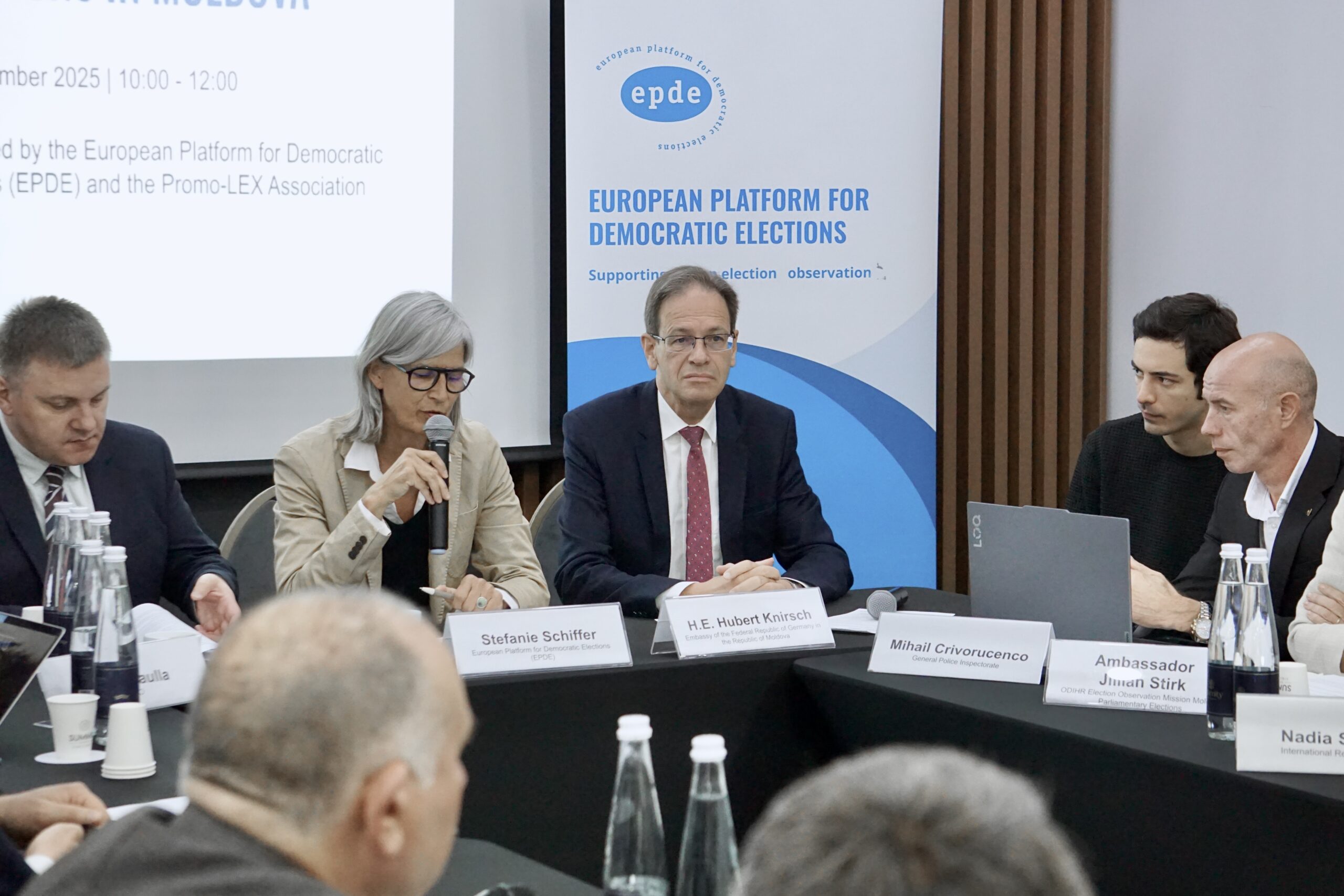
Moldova’s parliamentary elections on September 28, 2025, demonstrated both the country’s commitment to democratic standards and the serious challenges it faces from foreign interference coming from the Russian Federation and its local proxies.
Despite all this, international observers assessed the vote as “competitive and offering voters a clear choice,” though they acknowledged it was “marred by foreign interference, illicit financing, cyber-attacks and disinformation.” Overall, these elections have offered a number of valuable lessons on how to double down on democratic resilience.
EPDE and the Promo-LEX Association conducted a study trip (September 25-29) including briefings with the Central Election Commission of the Republic of Moldova (CEC), the Center for Continuing Education in the Electoral Field (CICDE), the United Nations Development Program (UNDP), the Audiovisual Council, the Center for Strategic Communication and Countering Disinformation (STRATCOM), and major political parties (PAS, Electoral Bloc “Alternativa”, and the Patriotic Electoral Bloc), plus election-day observation across Chișinău, Gagauzia, and the Transnistrian region.
Following E-day, EPDE and the Promo-LEX Association hosted a post-election roundtable with representatives of international and domestic observers, and law enforcement, including Nicolae Panfil (Promo-LEX), Ambassador Jillian Stirk (Head of Mission, ODIHR EOM), Alexandru Lupan (Deputy Head, General Inspectorate of Police), Nadia Sacovici (International Republican Institute), and Dritan Taulla (Head of Mission, ENEMO), with opening remarks by H.E. Hubert Knirsch, Ambassador of the Federal Republic of Germany to the Republic of Moldova, and moderation by EPDE’s Chair of the Board, Stefanie Schiffer. The discussions focused on
(1) how Moldova implemented pre-election legal and administrative fixes;
(2) E-day performance at the precinct level;
(3) coordinated action against illicit financing and organised voter pressure; and
(4) cyber/disinformation pressures and the communications posture of institutions.
The meetings with domestic stakeholders and exchanges with observation missions offered valuable insights into addressing foreign interference, illicit financing, cyber-attacks, and disinformation for democracies navigating similar challenges.
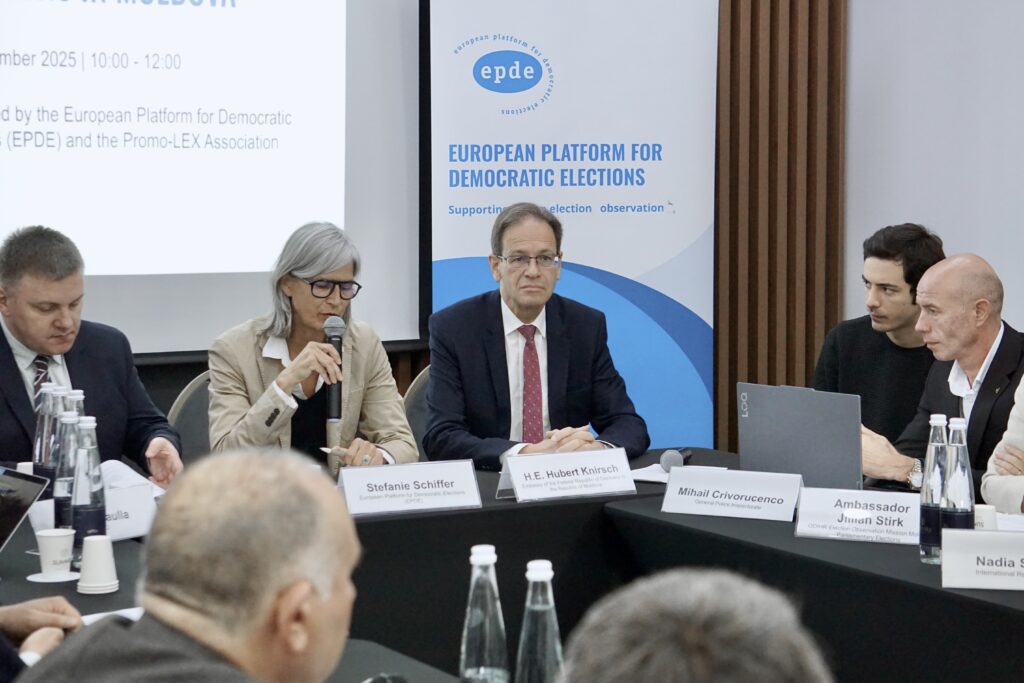
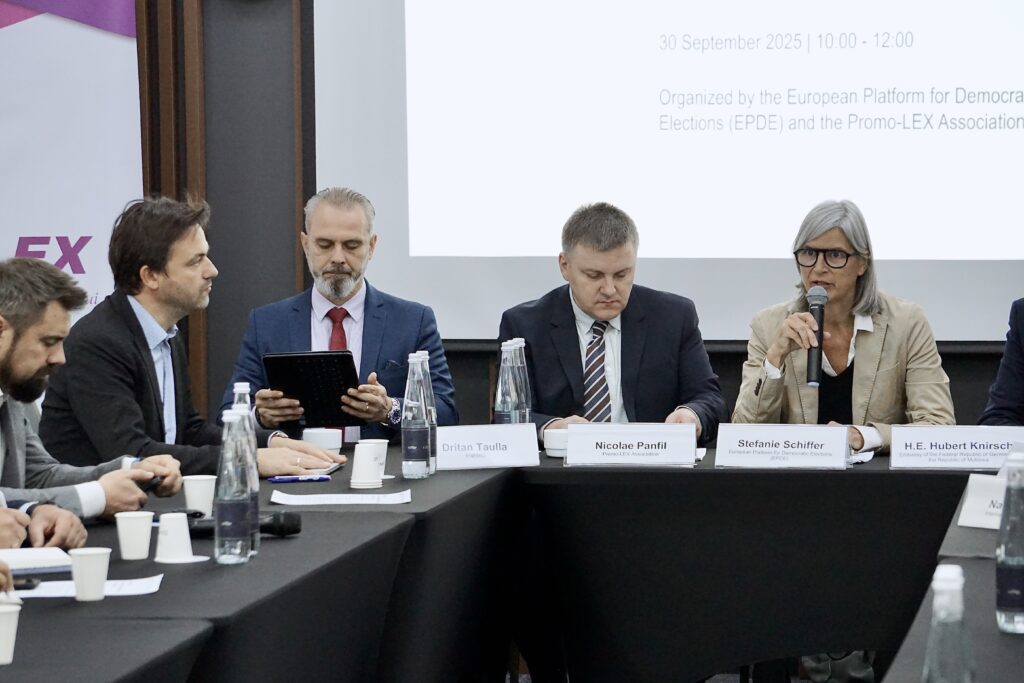
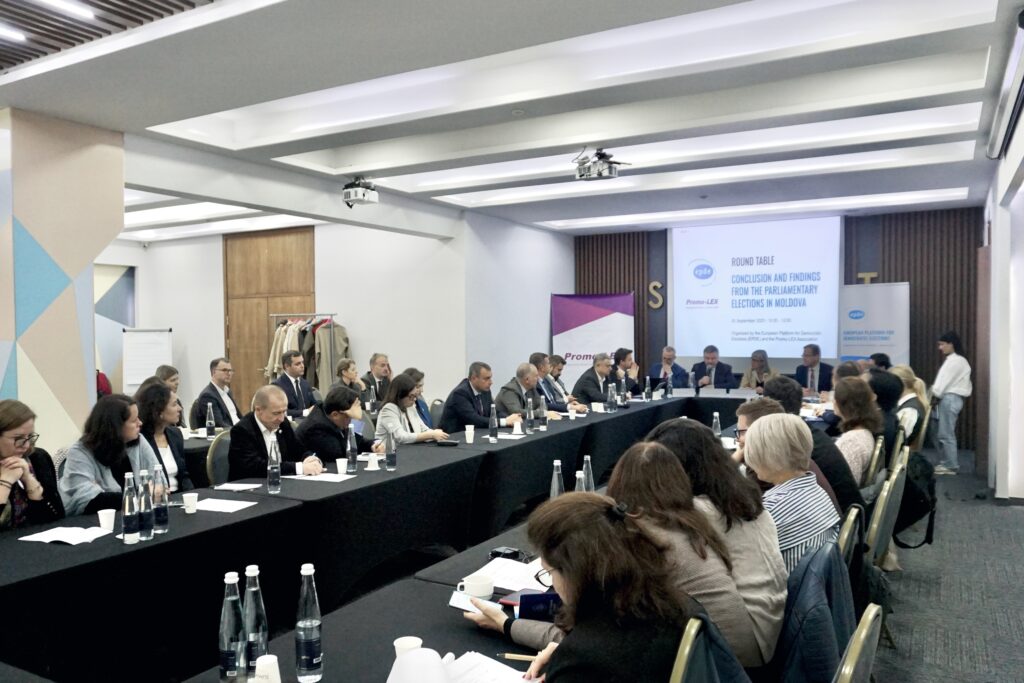
Foto: Post-election round table on 30 September 2025
Legal Framework Improvements
Moldova updated its legal framework in advance of the electoral process, further adhering to international best practices. Moldovan authorities made considerable efforts to implement electoral recommendations, with primary focus on oversight of party and campaign financing, and the introduction of a reporting system for the political contenders to the Central Election Commission (CEC) or the Audiovisual Council (AVC).
Robust Observation Architecture
Observation efforts were strong. The Central Election Commission accredited over 3,400 international and domestic observers. With 95% of all polling stations covered, these elections saw the largest presence of election observers in Moldova’s recent history.
This includes the presence of our teams on election day, which deployed in Chișinău, Gagauzia, and the Transnistrian polling stations, using standardized opening–voting–closing checklists and common incident coding. As in previous monitoring efforts, we used VoteMonitor, part of the Infrastructure for Good developed by Commit Global. The app’s offline mode and templated forms kept the workflow simple and resilient, especially in areas with patchy connectivity.
Protecting the Integrity of Election Observation
The CEC devoted special attention and efforts to safeguard the integrity of international observer accreditation. In cooperation with state security agencies, the CEC received and reviewed a large number of applications that were flagged for possible integrity issues and refused accreditation to those that did not pass the verification/vetting process, thereby preventing misuse of observation credentials and protecting public confidence in the process.
Multi-Stakeholder Counter-Measures to Election Manipulation
Efforts were undertaken to address foreign interference and vote-buying. Police and prosecutors conducted nationwide operations against illegal funding and voter bribery before and during election day, based on multi-stakeholder information provision of secret services, watchdogs, and analysts.
Cyber Resilience
Cyber defenses were tested by large-scale DDoS attacks, which peaked at over 16 million sessions targeting election systems. Due to backups and overall coordination between the CEC, the cyber team, and regulating bodies, the systems continued to function.
Expanded Diaspora Voting
Voting for Moldovans living abroad was expanded and improved for integrity. The CEC opened 301 polling stations overseas, including special locations for processing mail-in votes, and extended mail voting to 10 countries, building on earlier pilot programs. The CEC decided to open only two polling stations in the Russian Federation and no polling stations in Ukraine, thereby prioritizing security aspects and integrity considerations over equal access to vote.
Practical Recommendations for Europe
Citizen election observation, at its core, is about building trust. Moldova’s institutions, local observers, and international partners have demonstrated that working together with clear rules helps maintain fair and credible elections, even in the face of external pressures.
For the relevant stakeholders in other parts of Europe, our main recommendations are: start training and using checklists early, use the same system for reporting incidents across teams, prioritize swift and transparent action by the law enforcement and prosecutors against vote-buying, strengthen coordination with watchdog organizations as well as analysts, strengthen key digital services and keep the public informed about their status, and share information about diaspora voting logistics and supplies regularly.
We’re grateful to the Central Electoral Commission of the Republic of Moldova for formally inviting our delegation and for their practical support, and to the Promo-LEX Association for the excellent procedures briefing and field coordination.
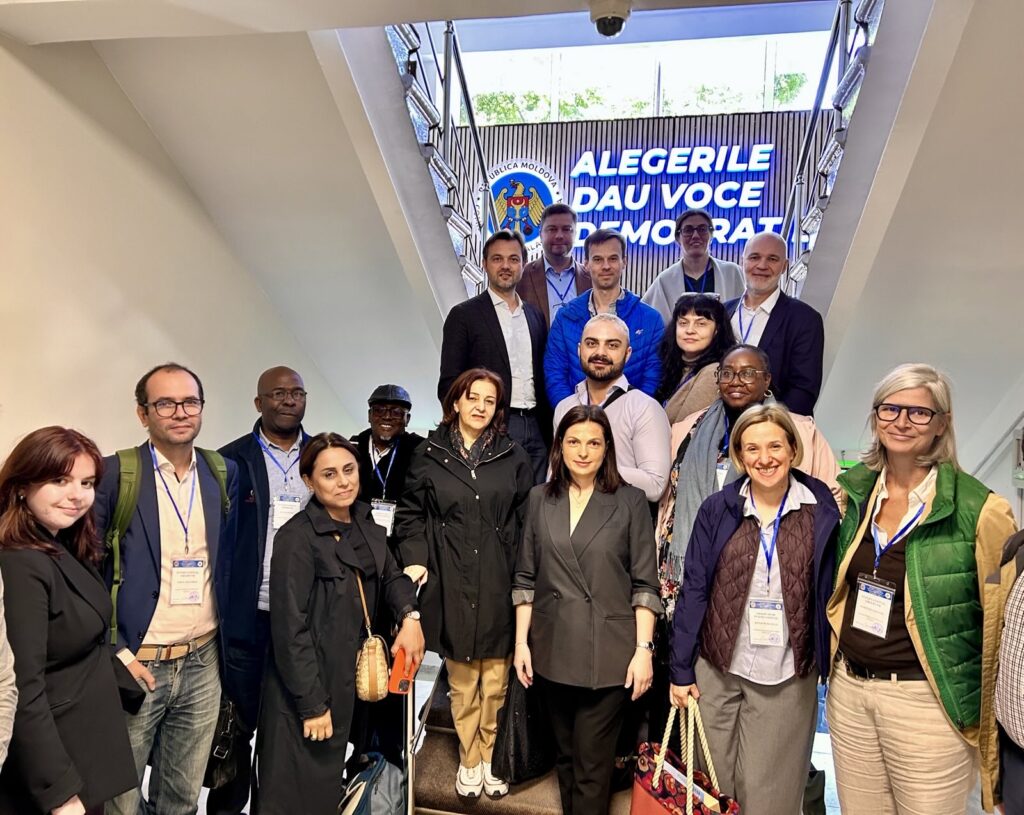
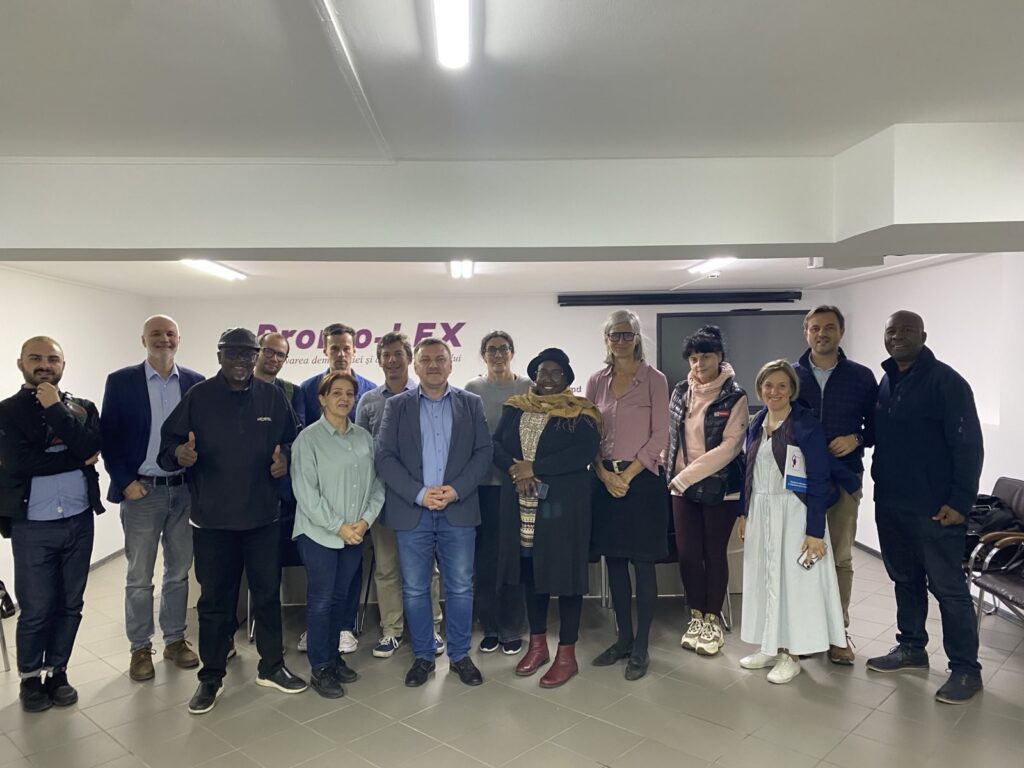
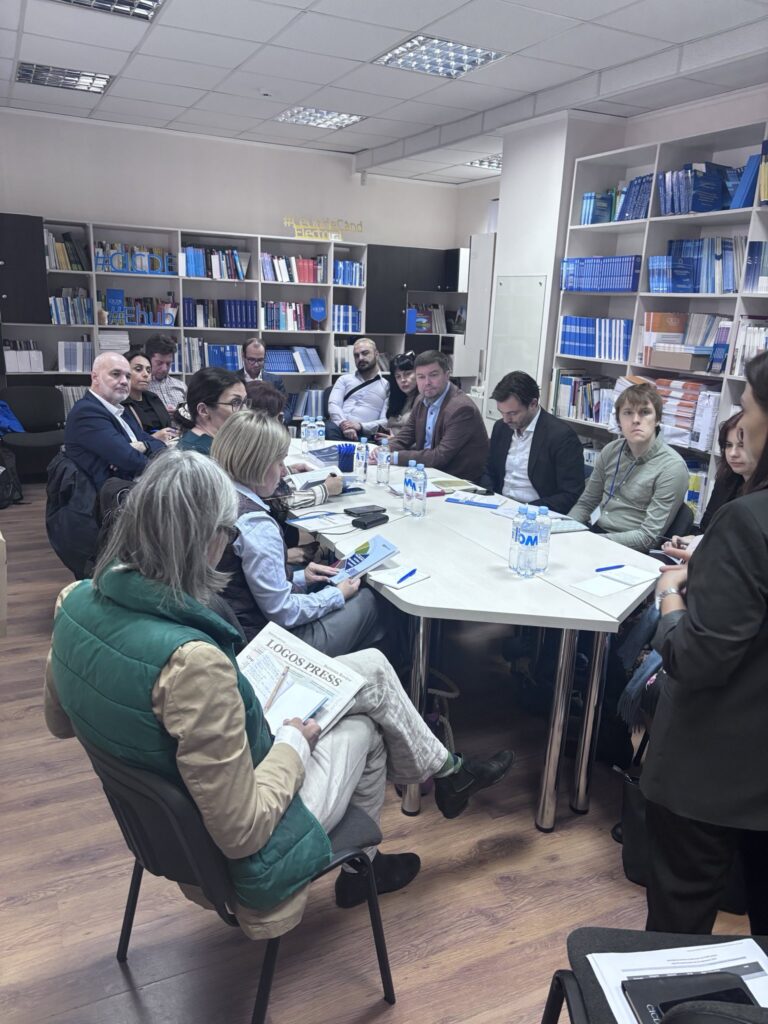
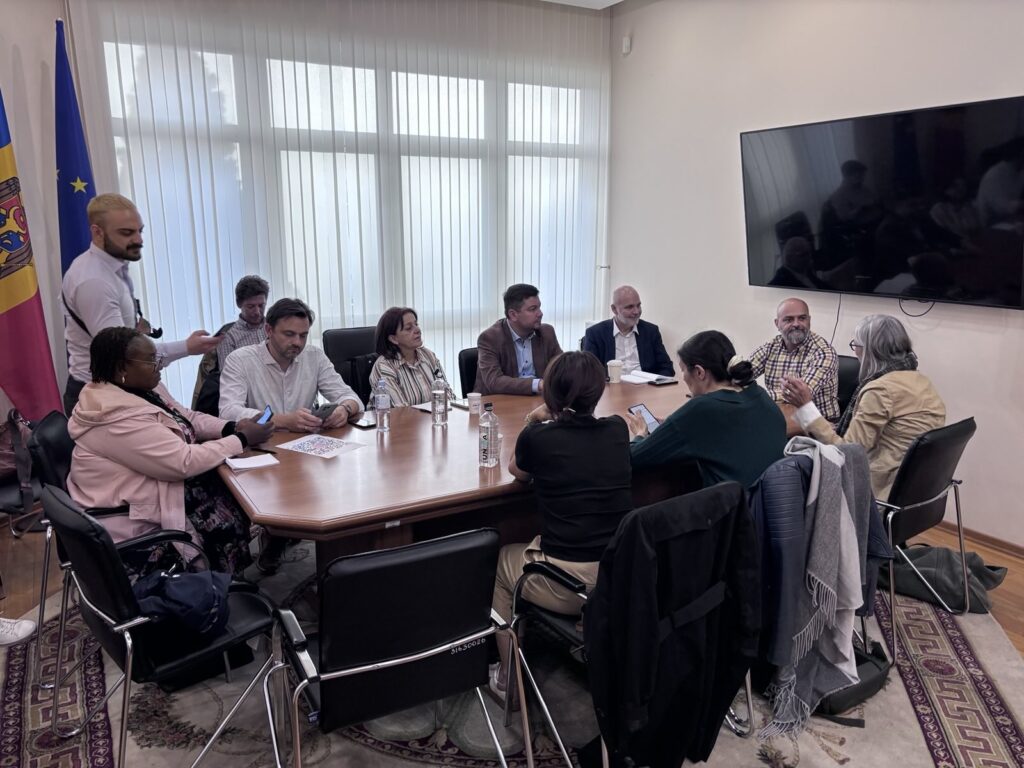
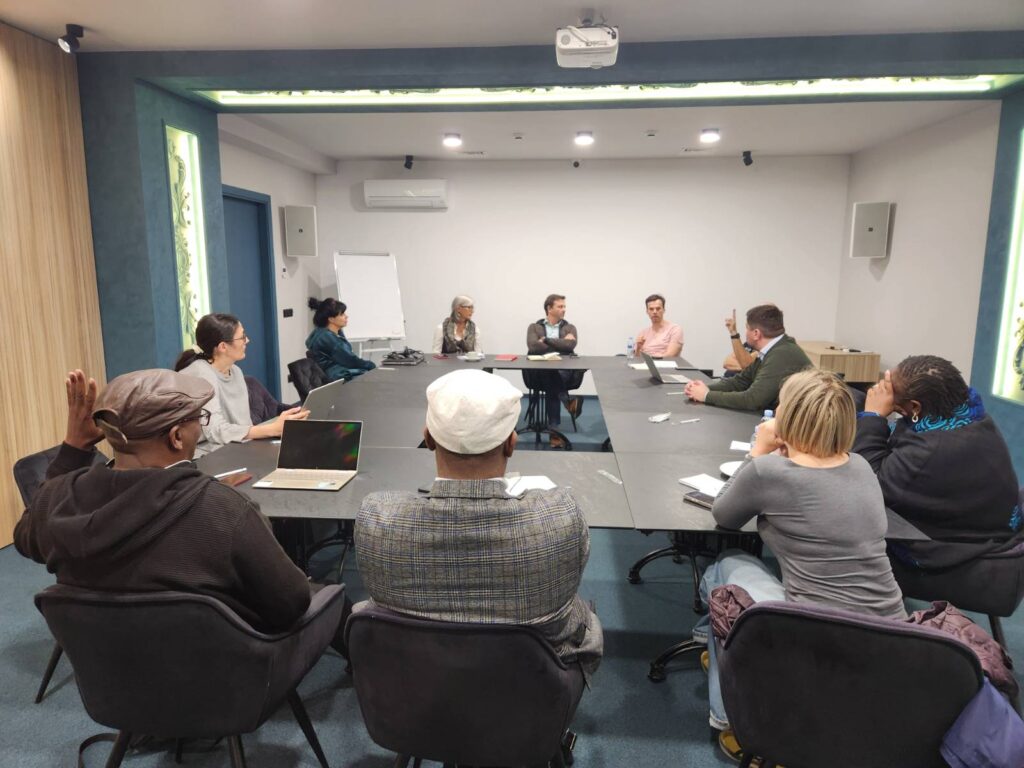
Top left: Meeting at the Central Election Commission; Top Center: At the Promo-LEX headquarters; Top right: Meeting with the Center for Continuing Education in the Electoral Field (CICDE); Bottom left: Meeting with the Center for Strategic Communication and Countering Disinformation (STRATCOM); Bottom right: Debriefing after the conclusion of the study trip.
Subscribe to our
newsletter
Sign up for our monthly newsletter
and receive the latest EPDE news
Subscribe to our
newsletter
Sign up for our monthly newsletter and receive the latest EPDE news